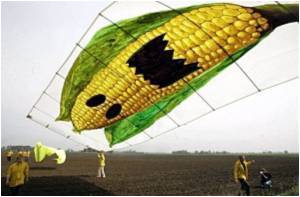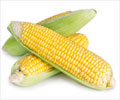Maize was originally domesticated in Mexico, but now the country's average yield per hectare is 38% below the world's average.

To combat insect pests, Mexican farmers rely primarily on chemical insecticides. Approximately 3,000 tons of active ingredient are used each year just to manage the fall armyworm (Spodoptera frugiperda), in addition to even more chemicals used to control other pests such as the corn earworm (Helicoverpa zea) and the black cutworm (Agrotis ipsilon). Because of the severity of these pests and the reliance on chemical insecticides, Mexico uses the highest quantity of pesticides per hectare of arable land in North America.
While integrated pest management (IPM) programs -- which aim to minimize economic damage and lower environmental and health risks -- are widely used in crops such as tomatoes, broccoli, and peppers, IPM is highly uncommon in Mexican maize crops.
In order to understand why, an expert panel composed of Mexican researchers and crop advisers gathered information from 2010-2013 regarding the main pests that reduce maize production, and the main methods being used to control these pests. Their findings are published in a free, open-access article in the Journal of Integrated Pest Management.
The authors found the diversity of growing conditions to be the greatest obstacle for implementing IPM programs for Mexico's 2 million growers, many of whose fields are only two hectares or less.
Another obstacle, according to the authors, is the lack of insect-resistant maize varieties, such as Bt hybrids. These varieties, which are genetically modified to express proteins from the bacterium Bacillus thuringiensis, are grown on 90 percent of maize fields in the U.S., whose yields per hectare are nearly three times greater than Mexican yields.
Advertisement
"There are a few solutions that can be immediately implemented to diminish the environmental impact of corn pests, including the use of Bt corn," added another co-author, crop consultant Guadalupe Pellegaud. "Unfortunately, people who oppose the introduction of this technology in Mexico do not seem to realize that a far greater environmental impact is done by applying more than 3,000 tons of insecticide active ingredient each year."
Advertisement









